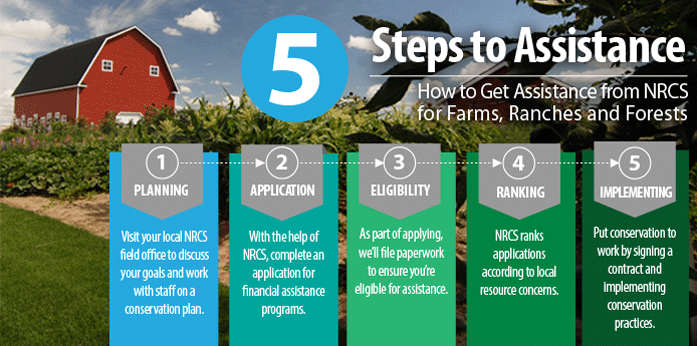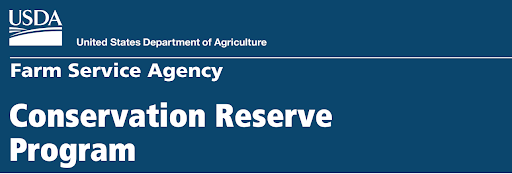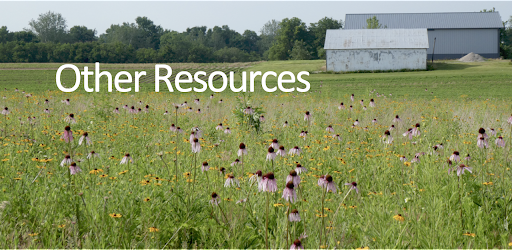Pollinator Partnership and NRCS Michigan
Connie Crancer, NRCS Pollinator Liaison Michigan
Connie has been a Michigan resident most of her life. She attended Michigan State University (BS Horticulture) and University of Michigan (MS Terrestrial Ecology) where she had a 26-year career at the UM Botanical Gardens and Arboretum. There, she served as a Native Plant Specialist on the Natural Areas Team and worked on a variety of projects including collecting, propagating, and dispersing native plant seed; creating plant lists for native plant gardens and plantings; and participating in restoration activities. In addition to being Pollinator Partnership’s Michigan NRCS Pollinator Liaison & Project Wingspan State Coordinator, she lives and works on an active farm that focuses on sustainable farming practices for pollinators, beneficial insects, birds, and other wildlife. Connie is passionate about their conservation-minded farming methods and enjoys engaging her local community through the farm by giving botanical field trips and talks about the logistics and importance of native plant gardening. Serving as Michigan’s NRCS Liaison, she hopes to leverage those messages through sharing NRCS assistance programs of creating pollinator and beneficial insect habitat with a greater agricultural audience and network. For further inquiries about her work with NRCS, you can reach Connie via email.

Technical and Financial Assistance - NRCS and Partners:
- Getting Started - 5-Steps to Assistance: NRCS has a 5-step process for technical and financial assistance to their conservation programs. Once you meet with your NRCS contact for Planning, they will assist you with Application and Eligibility for the MI Incentive program.
- Contact your MI Local NRCS Service Center
- Find your local Conservation District office: Each County Conservation District has expert conservation assistance and programs that best fit the local conservation resource needs. Explore your county CD website to see if they can assist you with your conservation needs.
NRCS Programs & Resources:

- The Environmental Quality Incentives Program (EQIP) is a voluntary conservation program administered by the USDA Natural Resources Conservation Service. It supports production agriculture and environmental quality as compatible goals. It is a voluntary conservation program administered by NRCS that provides technical and financial assistance for individuals engaged in livestock, crop, or forest production. Eligible land includes cropland, rangeland, pasture, and private non-industrial forestland on which agricultural products, livestock, or forest-related products are produced. Through EQIP, NRCS provides agricultural producers with financial resources and one-on-one help to plan and implement improvements or what MI NRCS calls conservation application practices. MI NRCS has EQIP conservation practices for wildlife which support pollinators. Visit the MI EQIP website and download fact sheets including the EQIP for Pollinators Fact Sheet.

- Conservation Stewardship Program (CSP) helps stewards of working lands to build on their existing conservation efforts while strengthening their operation. Whether you are looking to improve grazing conditions, increase crop yields, or develop wildlife (including pollinator) habitat, NRCS can custom design a CSP plan to help you meet those goals. Visit the MI CSP website and review this Information Sheet for more information.

- Conservation Reserve Program (CRP) Is a land conservation program financed by the Farm Service Agency (FSA) and administered by the NRCS. In exchange for a yearly rental payment, farmers enrolled in the program agree to voluntarily remove environmentally sensitive land from agricultural production and plant species that will improve environmental health and quality. Contracts for land enrolled in CRP are from 10 to15 years in length. The long-term goal of the program is to re-establish valuable land cover to help improve water quality, prevent soil erosion, and reduce loss of wildlife habitat. Within the CRP program there are conservation practices specifically benefiting pollinators: CP 38 the State Acres For Wildlife Enhancement (SAFE) Initiative, CP 42 (Pollinator Habitat) and CP43 (Prairie Strips) - in particular is a Michigan Prairie Strips (MISTRIPS) program.
Pollinators, Beneficial Insects and Insect Conservation in Agricultural Systems

- Natural Resource Conservation Service (NRCS)/USDA - Insects and Pollinators website
- Bee Friendly Farming (BFF) is a certification program through Pollinator Partnership working with farmers to help protect, preserve and promote pollinator health.
- Bee Friendly Farming Handbook - visit the BFF website for you free downloadable BFF Handbook which provides guidelines for farmers and growers to promote pollinator health on their lands
- Cover Cropping for Pollinator and Beneficial Insects which includes opportunities to use cover crops in farming systems, how to plant and manage clover crops, plant selection and insect conservation.
- Farming for Bees is a guideline for providing native bee habitat on Farms.
- Attractiveness of Agricultural Crops to Pollinating Bees for the Collection of Nectar and/or Pollen which provides a compilation of information on the attractiveness of crops grown in the United States to managed pollinating bees as food sources of pollen and nectar, agronomic practices that are relevant to the interactions between these insects and the crops, risk assessment process for pollinating bees in terms of determining the potential for exposure to pesticide applications on these crops and options for risk mitigation.
Non Profits, MI Governmental and University Programs

- Seed A Legacy - A Bee and Butterfly Fund which provides free seed to shovel-ready projects that will support pollinators and the Monarch butterfly in the Midwest (private, public and corporate lands) as well as a free downloadable Pollinator Habitat Establishment and Management Guide.
- Pollinator Initiative, A Michigan State University website for managed and native bee and monarch butterfly resources including resources and guidance on large scale pollinator plantings and many downloadable publications including Establishing Wildflower Habitat to Support Pollinators of MI Fruit Crops.
- Native Plants and Ecosystem Services - a Michigan State University website - Using Michigan native plants to produce win-win situations for agriculture, communities, and the environment. Instruction for planting and maintenance of native plants, teaching tools, plant search tool, regional native plant lists and many publications and useful links.
- U.S. Fish and Wildlife Service's Partners for Fish and Wildlife Program (USFWS-PFW) provide assistance to private landowners to improve their lands for wildlife including pollinators and Monarch butterflies.
- Fish and Wildlife - Save the Monarch Program.
- Monarch Joint Venture provides guidance for creating habitat and citizen science opportunities for the monarch butterfly.
- MDARD (Michigan Department of Rural Development) - Managed Pollinator Protection Plan.
- MDNR (Michigan Department of Natural Resources) - Wildlife Habitat Grant Program.
- MDNR (Michigan Department of Natural Resources) - Landowners Guide to Prairie Restoration.
- MDNR (Michigan Department of Natural Resources) - Pollinator Health Tips.
- Michigan Prescribed Fire Council advocates, protects, conserves, and expands the safe use of prescribed fire in Michigan by creating a network of practitioners, guides, and students of prescribed fire.